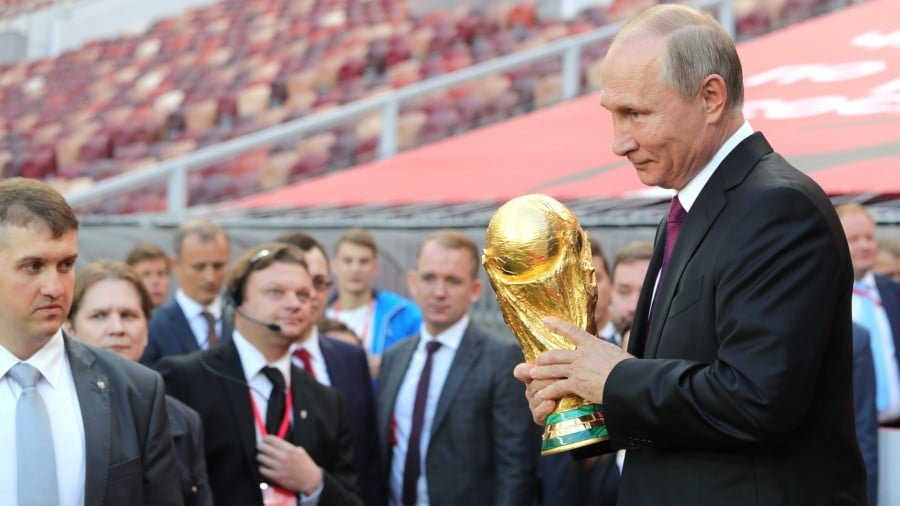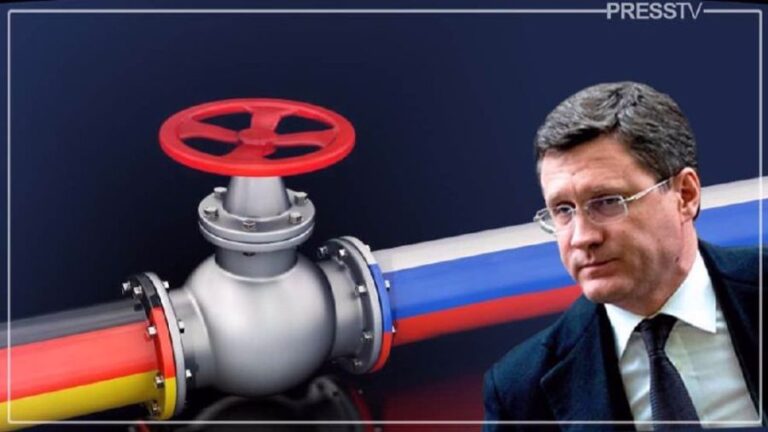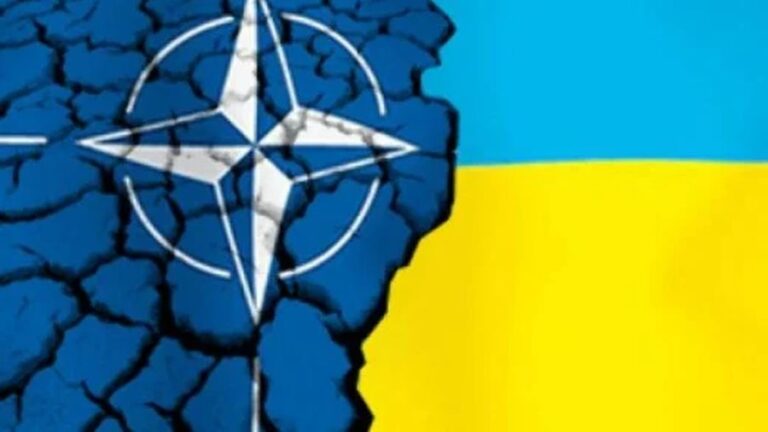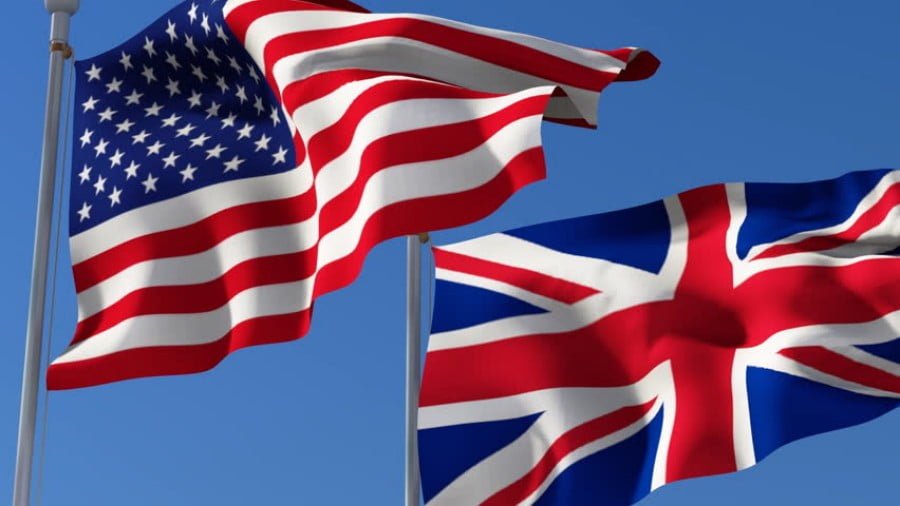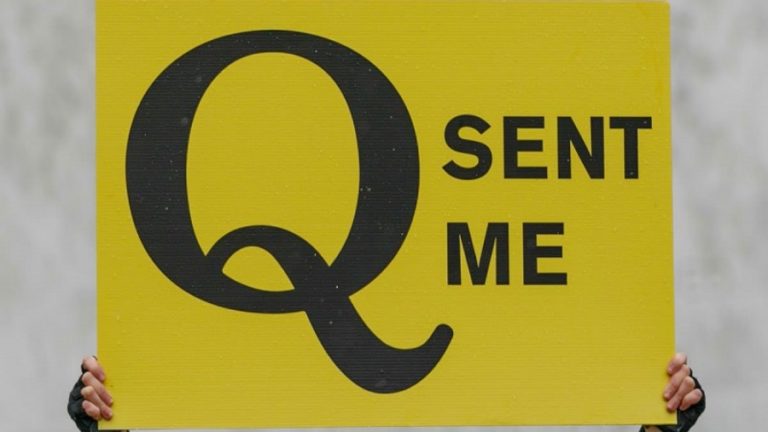The World Cup has Political Dimensions, and They’re All to Russia’s Benefit
The act of playing and watching football should always remain apolitical, but it’s impossible not to notice the political dimensions of hosting the World Cup, all of which decisively play to Russia’s favor.
It was a very prudent move for President Putin to work his hardest over the years in getting FIFA to ultimately grant Russia the global honor of hosting the 2018 World Cup. This renowned privilege will assuredly be to Moscow’s political advantage despite the act of playing and watching football being a decidedly apolitical pastime. Here are the three benefits that Russia stands to reap through its hosting of this event, beginning with those that are most relevant from a grassroots level and then proceeding to the ones that are within the realm of International Relations:
1. Showcasing Russia’s Soft Power
The rising Russian Federation of 2018 is nothing like the collapsing Soviet Union of the late 1980s that it’s misportrayed as being by the Mainstream Media, and although the country recently hosted the Sochi Winter Olympics in 2014, the soft power significance of that event pales in comparison to the FIFA World Cup that’s taking place in 11 separate Russian cities instead of only just one, to say nothing of the global populace’s comparatively higher level of engagement with football compared to winter sports. For the first time since the beginning of the New Cold War that broke out shortly after the Sochi Winter Olympics when the Western-backed urban terrorist movement of “EuroMaidan” succeeded in overthrowing the democratically elected and legitimate Ukrainian government, people from all across the world are willing to travel to Russia out of love for the favorite pastime and will actually get to see what the country that’s been so gruesomely reviled by the Mainstream Media is really like.
Russia’s come a far way in the over quarter-century since its post-Soviet independence, and while some socio-economic and infrastructure problems still persist from communist times (which President Putin boldly called out in March and promised to fix during his fourth and final term in office), there’s no doubt that the situation in the country has markedly improved since President Putin entered office at the beginning of the century, and it’s this New Russia that he and his people want to showcase to the world. They have a lot to be proud of, and the world has plenty to be surprised about when fans see just how wrong the prevailing narrative about Russia has been, which is exactly what Moscow is counting on. In this day and age, the more than two million visitors that are expected to travel to the country over the next month will probably share their first-hand experiences on social media with their friends and family, who trust these tourists’ impressions.
This is important to emphasize because it will undercut the weaponized infowar narrative that Russia is a barren land of angry, impoverished people living under a devilish dictatorship that poisons former spies and Syrian civilians alike while shooting down airliners with impunity. The scary stereotypes that have been spread about Russia are all wrong but served a strategic purpose in getting people – and especially those in the West – to fear it, both deterring them from visiting and also making them more likely to accept their governments’ provocative moves in deploying NATO forces closer to Russia’s borders. Now, however, many people will find out that what they were told for almost the past half of a decade was wrong, and that Russia is a prosperous country with friendly people who are living in a functional democracy that has invested billions over the years in the country’s physical development. The Western elite fear this awakening, but alas, they’re powerless to do anything about it.
2. Security & Diplomatic Coordination
Moving up the ladder from the grassroots to state level, it’s inevitable that some degree of security and diplomatic coordination will occur between Russia and the countries from where the most fans will be attending. This is ordinarily an unremarkable observation but takes on a new meaning in the context of the New Cold War after European countries severely downgraded or in some cases outright cut off their security ties with Russia. Now, however, there’s a practical reason for resuming them, at least on a small scale, and that’s to make the World Cup as safe and comfortable of an event for everyone who’s attending.
There’s no reason why the UK, for example, wouldn’t inform Russia of an impending terrorist plot against a stadium or fan event if it found out about one because its own citizens could be caught in the mayhem. On the diplomatic front, embassies are receiving information about different World Cup-related events from the Russian government, which will help to make fans’ experience in the country much more enjoyable, provided of course that they reach out to their countries’ diplomatic facilities for assistance. Altogether, the security and diplomatic coordination that will naturally be resumed between Russia and some Western countries could provide the basis for a future rapprochement
3. Leadership Meetings
President Putin made it no secret that he will be meeting with each national leader that attended the World Cup Opening Ceremony, which also implies that he’ll do the same to any others who show up at any time throughout the next month to cheer on their teams as he relishes in his personal responsibility to be a gracious host. While some of these interactions will probably be more of a casual greeting than anything politically relevant, others will carry with them a very heavy political significance, such as President Putin’s hosting of Saudi Crown Prince Mohammed Bin Salman (MBS) as his guest of honor on the day that the tournament began. It was a coincidence that brought those two together on that day since neither of them could have planned for their teams to face-off against the other in the World Cup’s first match, but it couldn’t have been more fortuitous for the de-facto Saudi leader.
MBS needed a high-profile and friendly opportunity for reentering public life after his mysterious weeks-long disappearance, and his presence at President Putin’s side as the Russian leader’s guest of honor during the opening match of the World Cup tournament provided just that. Furthermore, President Putin had nothing but praise for the young royal when they met in the Kremlin, politely referring to him as “Your Highness” and reminding him that “You know about our warm feelings for you”. In a stroke of fate, their meeting occurred on the last day of Ramadan for Russian Muslims (which came a day before some other Muslims’ because of the lunar sighting), which is why President Putin began his greeting by saying that “First of all, I would like to wish you a happy Eid al-Fitr, the holiday which marks the end of the Muslim holy month of Ramadan”, making this meeting one of crucial soft power significance that can’t be downplayed in any way.
The Saudi King, which is what MBS will become once his elderly father passes away or steps down, is the Custodian of the Two Holy Mosques in Mecca and Medina and therefore a powerful symbol for all Muslims, so for future-King MBS to be in Russia on the eve of the sacred feast of Eid al-Fitr that commemorates the end of the fasting season instead of remaining in his Kingdom with his people testifies to the sincerity of the Russian-Saudi rapprochement and the importance of the business that both sides were so eager to conduct with one another. This publicly involved OPEC+ coordination and Riyadh agreeing to invest $100 million in a Russian technological park but likely also had something to do with Syria, too. In any case, the extraordinarily successful and mutually beneficial Putin-MBS Summit that occurred on the opening day of the World Cup will probably presage similarly significant meetings with other visiting world leaders throughout the coming month.

